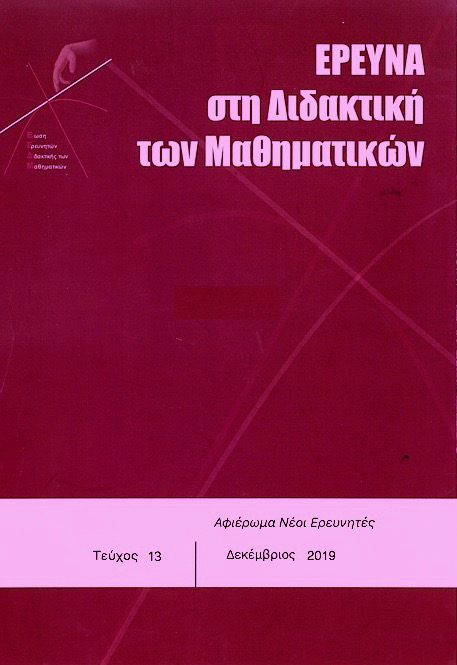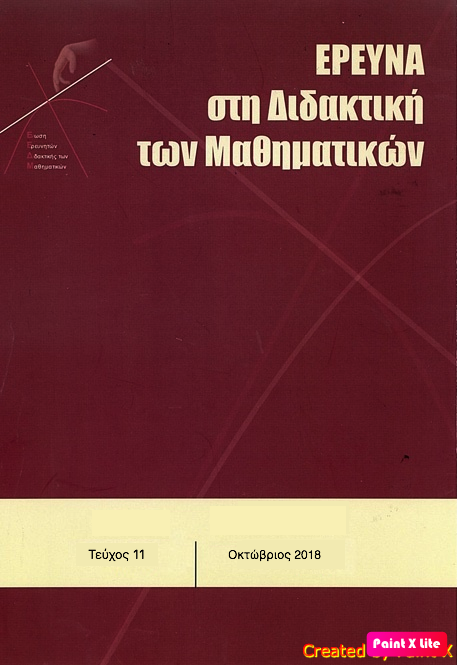ΣΤΡΑΤΗΓΙΚΕΣ ΝΟΕΡΟΥ ΥΠΟΛΟΓΙΣΜΟΥ ΣΕ ΠΡΟΣΘΕΣΗ ΚΑΙ ΑΦΑΙΡΕΣΗ ΜΕ ΑΚΕΡΑΙΟΥΣ

Περίληψη
Λεπτομέρειες άρθρου
- Πώς να δημιουργήσετε Αναφορές
-
Λεμονή (Ioanna Lemoni) Ι., & Χρήστου (Konstantinos Christou) Κ. (2019). ΣΤΡΑΤΗΓΙΚΕΣ ΝΟΕΡΟΥ ΥΠΟΛΟΓΙΣΜΟΥ ΣΕ ΠΡΟΣΘΕΣΗ ΚΑΙ ΑΦΑΙΡΕΣΗ ΜΕ ΑΚΕΡΑΙΟΥΣ. Έρευνα στη Διδακτική των Μαθηματικών, (13), 25–45. https://doi.org/10.12681/enedim.21965
- Ενότητα
- Νέοι Ερευνητές

Αυτή η εργασία είναι αδειοδοτημένη υπό το CC Αναφορά Δημιουργού 4.0.
Οι συγγραφείς των άρθρων που δημοσιεύονται στο περιοδικό διατηρούν τα δικαιώματα πνευματικής ιδιοκτησίας επί των άρθρων τους, δίνοντας στο περιοδικό το δικαίωμα της πρώτης δημοσίευσης. Άρθρα που δημοσιεύονται στο περιοδικό διατίθενται με άδεια Creative Commons BY και σύμφωνα με την άδεια μπορούν να χρησιμοποιούνται ελεύθερα, με αναφορά στο/στη συγγραφέα και στην πρώτη δημοσίευση.


